The Apple iPad Air 2 Review
by Joshua Ho on November 7, 2014 9:30 AM EST- Posted in
- Tablets
- Apple
- Mobile
- iOS
- ipad Air 2
GPU Performance
On the GPU side of things the iPad Air 2 seems to have a GX6650, which should provide a healthy boost to GPU performance when compared to the GX6450 in the A8. Apple has placed a strong emphasis on gaming for their iPad line, so there are some obvious comparisons to be made between NVIDIA's Tegra K1 and the A8X as well. To test this, we use a suite of benchmarks that can give a good idea of real world gaming performance.
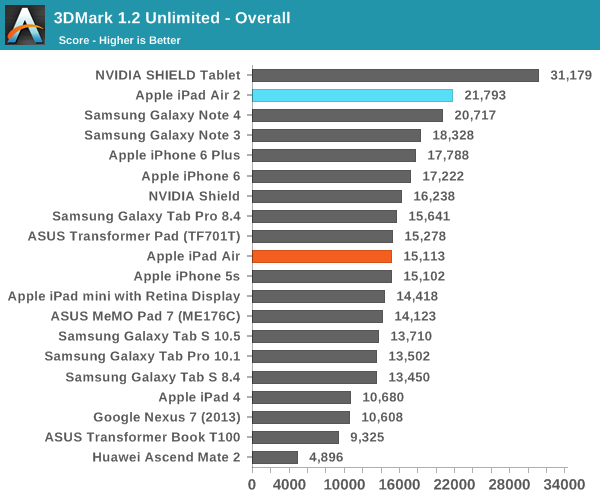
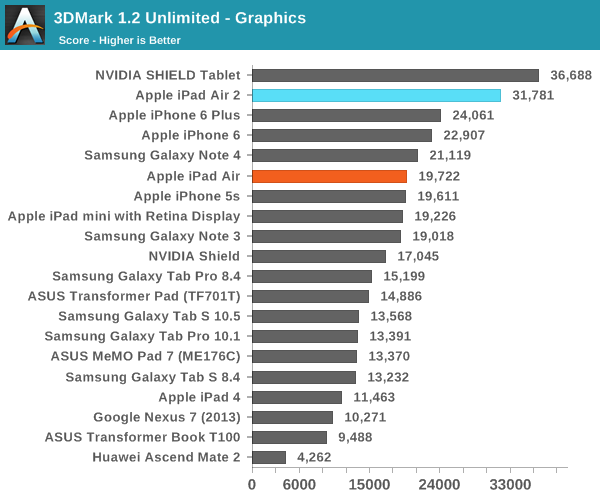
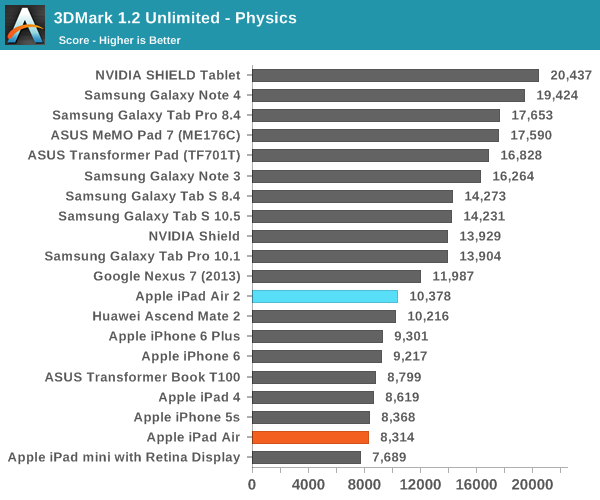
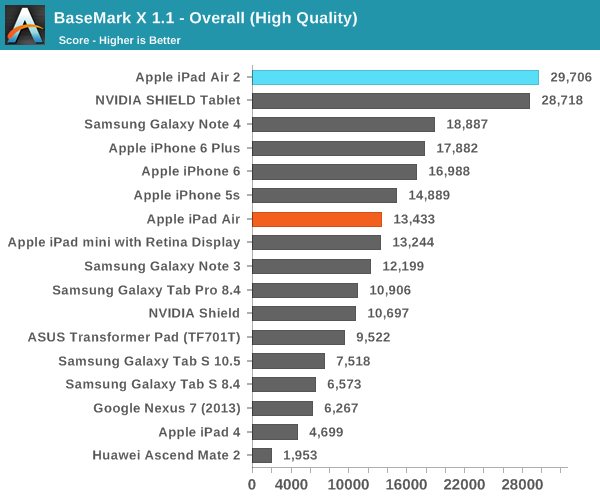
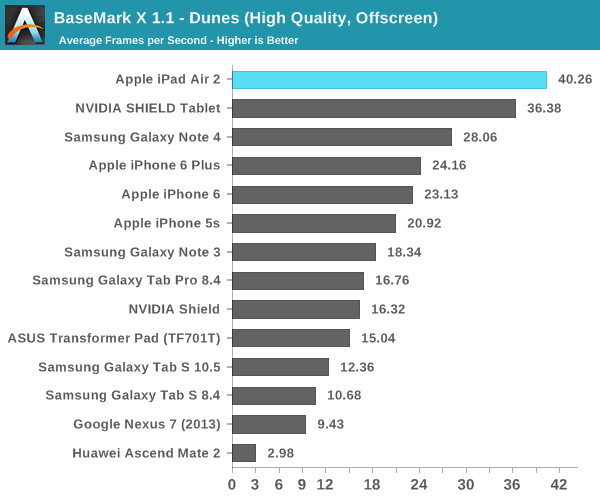
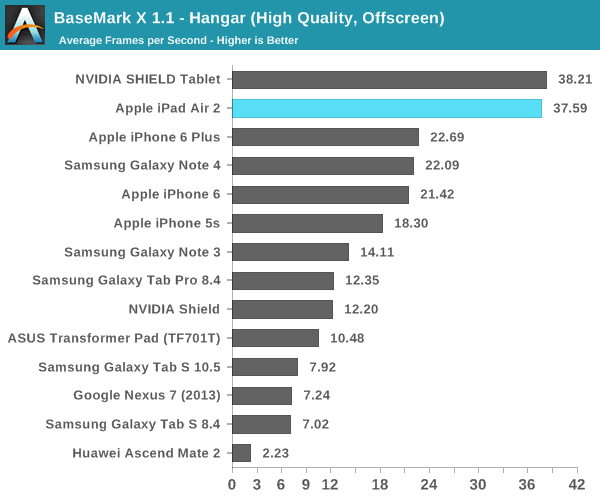
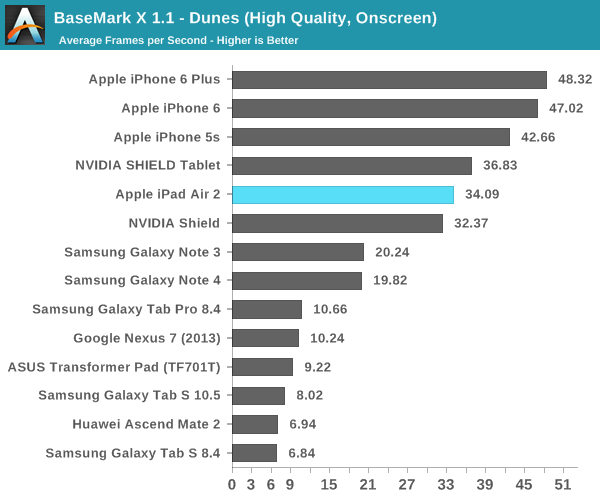
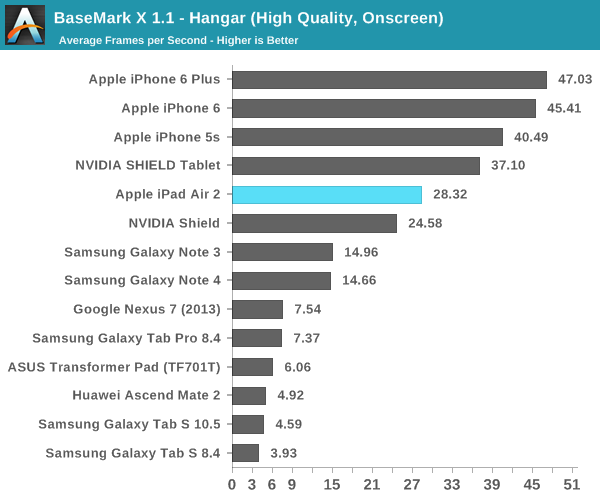
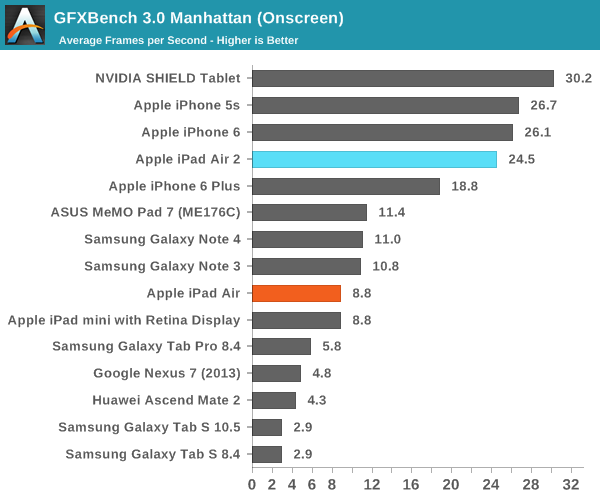
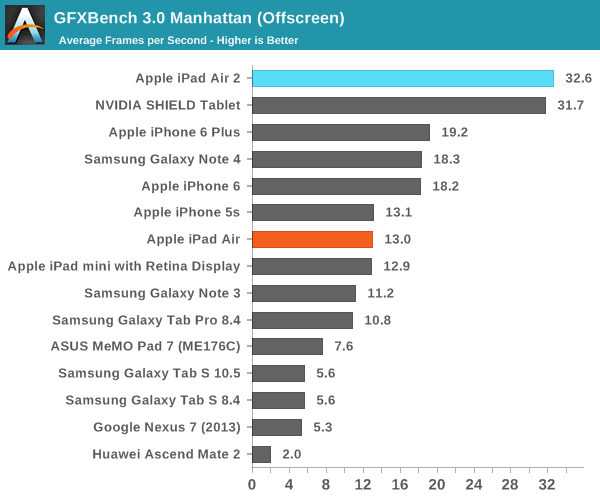
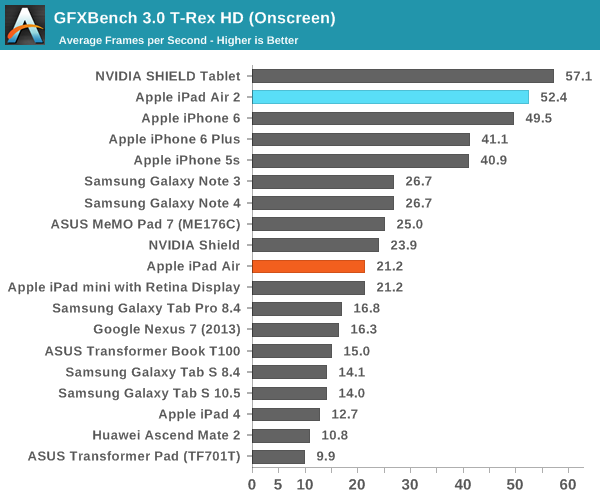
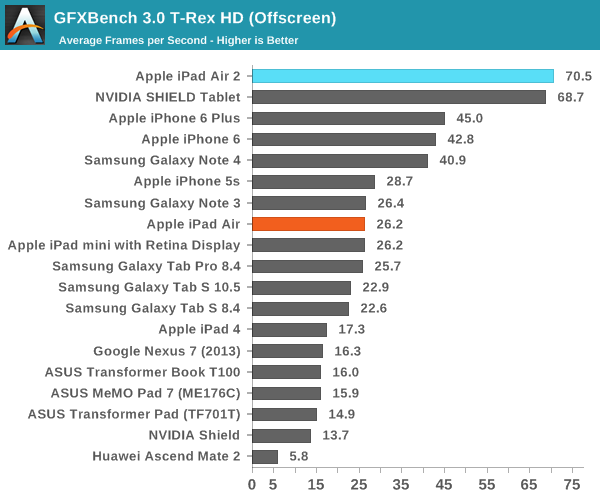
In practice, while we see that the A8X's GPU is extremely close to Nvidia's single Kepler SMX across the board, with the sole exception of 3DMark which seems to be due to the dependencies present in the physics test that dramatically lower the overall score. NVIDIA's Tegra K1 seemed incredible for its GPU performance earlier this year, so it's just as surprising to see Apple successfully rival NVIDIA in this area. Of course, GPU performance is a function of both peak performance and sustained performance, so we'll have to look at the GFXBench battery rundown test to get the full picture here. If Apple can deliver far superior performance and battery life in such a situation, it's pretty clear that the jump to 20nm will be critical to pushing the limits on what's possible in a mobile device.
NAND Performance
As we've seen before on some tablets, poor storage performance can cause major issues with the overall experience as I/O pauses can far exceed just a few frame drops that one might expect from cases of UI lag induced by insufficient performance elsewhere. In order to attempt to quantify this performance we use a custom utility developed by Eric Patno. While such testing is far from a complete look at performance, this can give a rough idea of what to expect.
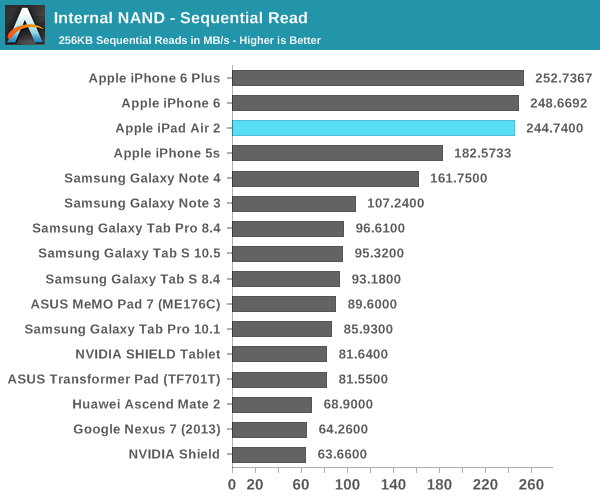
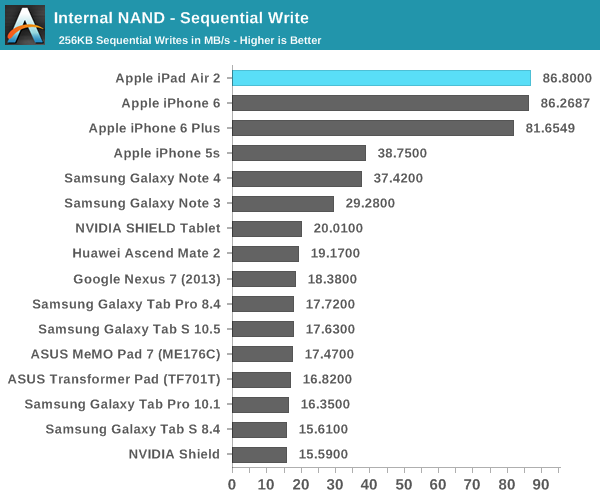
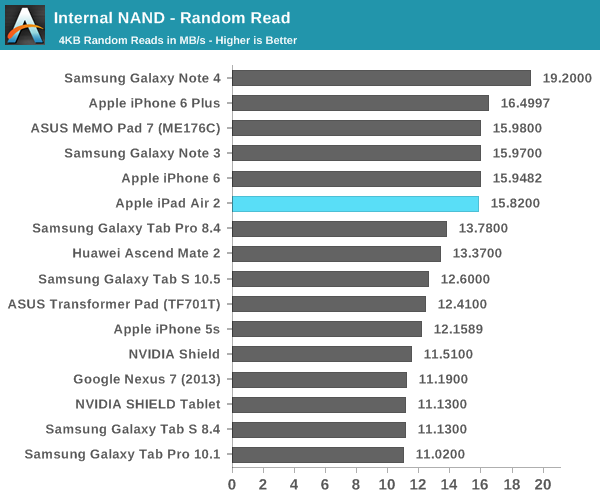
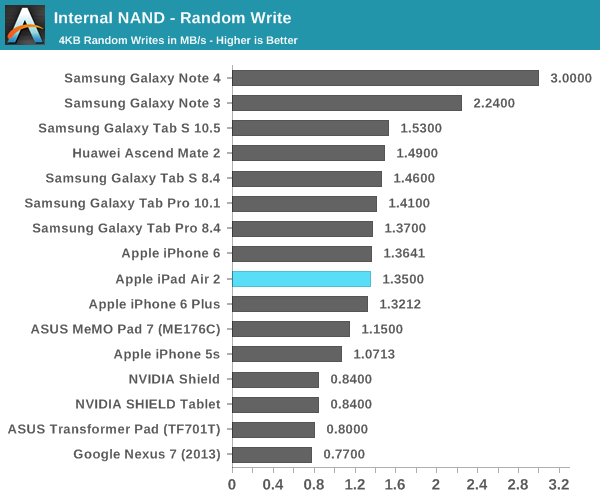
Overall, it seems that Apple does quite well on the storage tests. It seems that the iPad Air 2 shares its storage solution with the iPhone 6. While I don't have an iPad Air on hand for testing, it should match quite closely to the iPhone 5s. This represents a generally high-quality NAND solution, but as mentioned before random I/O could stand to improve a bit. Compared to most of the lower-cost Android tablets it's definitely as good as it gets though.










226 Comments
View All Comments
deontologist - Friday, November 7, 2014 - link
About time this review went up.odedia - Friday, November 7, 2014 - link
Will you review the iMac 5k? I'm waiting for the review before purchasing. Mainly ssd&gpu performance.Ryan Smith - Friday, November 7, 2014 - link
The Retina iMac review will be next week. However it's the base model, so you're looking at a 1TB Fusion drive setup rather than a pure SSD, and the GPU is basically just Radeon HD 7870.odedia - Saturday, November 8, 2014 - link
That's too bad... I would expect the majority of those buying this aching to at least bump up the Cpu and more importantly -the GPU.ws3 - Saturday, November 8, 2014 - link
Bumping up the GPU is only "more important" for people who play high-end games. For most iMac users it is unnecessary. For example, if I were to buy the 5k iMac I would use it mainly for programming, and not for programming high-end games, so the GPU upgrade wouldn't be necessary for me.deontologist - Friday, November 7, 2014 - link
“Enhanced Cyclone” is still at the top of its class for both IPC and overall single-threaded performance" ... the Apple bias is strong. I like how you guys cite Geekbench scores while failing to note that the Nexus 9 with its Tegra K1 running **32 bit** Geekbench still outscores the A8X. Granted, the K1 is running at 2.3 GHz, so its IPC might be a bit lower than the A8X's 1.5 GHz, but overall single-threaded goes to the K1 no sweat. When 64-bit GB is ready I expect the K1 to blow the A8X out of the water.tipoo - Friday, November 7, 2014 - link
They waited on newer firmware before making conclusions on the Nexus 9. If anything you should be thankful for that, so relax.steven75 - Friday, November 7, 2014 - link
Speaking of bias... The Geekbench score I saw were not at all clearly for the K1.blackcrayon - Friday, November 7, 2014 - link
The single core performance of both seems to be similar, so perhaps they're both at the top of their class. The Apple whining is strong (with you).techconc - Friday, November 7, 2014 - link
I'm not sure exactly what your issue is. The statement about the A8X having the highest IPC is a fact. This is not in dispute. You even acknowledge the clock speed difference in your post. How exactly do you interpret this as a bias?